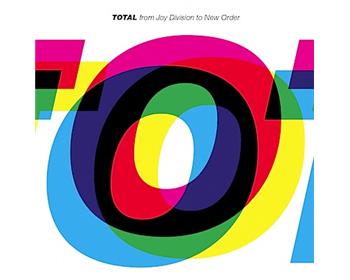Having only been working in London for nine months – straight out of
uni – I’m not on a grand wage. I drink at the cheapest bars. I buy my
clothes from H&M and shop at my local Somerfield every Sunday for
the cheapest food I can find. I don’t buy organic. Okay, so maybe I’m
not looking after my body properly. Maybe I’m pumping myself full of
chemicals. Do I care? My bank balance does.
As far as I can tell
organic food has become a bit of a designer label amongst the
professionals in London. But why has everyone gone crazy about it? And
is it simply an exploitation or does it really improve our lifestyles?
After asking a few organic-eaters, I’ve come to the conclusion that most people eat it because they think it’s healthier, but they don’t know why.
There’s
a whole host of organic eateries, cafés and food producers lining the
streets of London: including Café Direct, Green and Blacks, Clipper
Teas, Suma, innocent, Howies, Hug and almost every supermarket sell
their own-brand organic produce. But when you visit these places, or
choose to buy organic food, you’re hit with a huge price tag. For
instance, I went into Planet Organic the other day. For one smoothie
(which isn’t particularly big) they charged me £5. The place was full
of rich, pretentious hob-nobbers, dressed up in their designer gear,
which even in my dreams I can’t afford. And as for the food hall – it’s
sparsely stocked, with the appearance that one block of cheese should
last you a year.
So, what’s the difference between organic and non-organic (other than the price)? Lets get a few things cleared up…Organic
food does not mean that the food you’re eating hasn’t been flown around
the world to get to your plate. It does not mean that it hasn’t been
frozen. It does not mean that it hasn’t been washed with some
chemicals. And it does not mean that it hasn’t been kept fresh with
gases.
But, apparently it is better for you. The food is grown
without the use of pesticides and fertilisers and doesn’t contain
artificial additives, colourings, flavourings or hydrogenated fats. In
non-organic food 7,000 artificial additives are permitted, whilst
organic foods only contain seven of the most innocuous natural
additives. The organic food regulations also prohibit the inclusion of
phosphoric, antibiotics, hormones, BSE, GMO’s and artificial processing
aids.
Organic food and drink now accounts for 1.2% of the total
retail market in the UK. And direct sales of organic produce topped
£100 million in 2004. But, as far as the general public of London are
concerned it appears that it is mostly the more well off who indulge in
organic-eating. People like me just can’t afford it.
Still, by
eating organically you are perhaps, possibly, maybe reducing the risk
of diabetes, heart disease, osteoporosis, obesity, cancer and some
other “unidentified” ailments. But it doesn’t help the organic cause
when the Food Standards Agency doesn’t back organic-living. According
to them, on the basis of current research, their assessment is that
“organic food is not significantly different in terms of food safety
and nutrition from food produced conventionally. The Agency is opposed
to members of the food industry that make health, or quality claims
regarding organic food, simply because they mislead the consumer”.
So is it or isn’t it better to eat organically? Well, in the words
of restaurant critic AA Gill “I’m buggered if I know.” As far as I can
see it is healthier, but not drastically enough to go spending my hard
earned cash on. Maybe once more farmers are producing organic food more
of us will be able to eat ‘healthily’, I know I would if I could afford
to. Until then I’ll leave the organic stuff to those who are far
‘trendier’ than me, and I think I’ll stick to my pesticide carrots and
my phosphoric cola. Yum.
Oh and just a quick note to
any animal-loving-organic-eaters: whilst researching all of this I
found out that for meat to be classed ‘organic’ chemicals are not to be
used on the animals. This means that if they get ill the farmers aren’t
allowed to treat them without sticking them in quarantine for a while
afterwards. Unfortunately most farmers can’t afford the fees of
quarantine, so many of the ill organic animals will suffer more than
the ill non-organic animals, which are treated immediately with
medicines. Oh well.


